I get it all I’m saying is that reparations is for formerly enslaved people is all.You made that point, like all people who know they are indigenous hold the belief they weren't slaves or that slavery didn't exist.
Listen, there's people of varying opinions in every group, trying to make people with fringe opinions the face of the entire group is nothing short of dishonest. No different from the people who label anyone who identifies as FBA a Tariq Nasheed supporter, it's fukking annoying.
You are using an out of date browser. It may not display this or other websites correctly.
You should upgrade or use an alternative browser.
You should upgrade or use an alternative browser.
“I am A Foundational Black American” - Ryan Coogler
- Thread starter Jazzy B.
- Start date
More options
Who Replied?A side note.@High Art
A list of some* of the things Black Americans have done for Africans with little to no return
Not including literally starting aviation in Ethiopia and training the pilots over there.
1. **Martin Delany’s Pan-African Emigration Advocacy (1850s)**: Delany explored African resettlement and promoted unity, inspiring nationalist movements in Africa.
2. **W.E.B. Du Bois’ Pan-African Congresses (1900–1945)**: Du Bois organized global conferences that connected African American and African leaders, shaping decolonization strategies.
3. **Edward Wilmot Blyden’s Writings on African Identity (Late 19th Century)**: Blyden’s works on African self-governance influenced liberation movements in Liberia and Sierra Leone.
4. **Paul Robeson’s Support for Independence Movements (1930s–1950s)**: Robeson raised funds and awareness for African nations like Ghana and Nigeria fighting colonial rule.
5. **African Methodist Episcopal Church Missions (Late 19th–Early 20th Century)**: African American missionaries built schools and churches in West and Southern Africa, fostering education.
6. **TransAfrica’s Anti-Apartheid Campaign (1977–1990s)**: Founded by African Americans, TransAfrica lobbied for U.S. sanctions, aiding the fall of South Africa’s apartheid system.
7. **Congressional Black Caucus’ Anti-Apartheid Act (1986)**: The Caucus was pivotal in passing the Comprehensive Anti-Apartheid Act, imposing sanctions that pressured South Africa.
8. **Malcolm X’s African Solidarity (1960s)**: Malcolm X met African leaders like Kwame Nkrumah, sharing civil rights tactics that influenced anti-colonial strategies.
9. **Martin Luther King Jr.’s Nonviolent Influence (1960s)**: King’s civil rights strategies inspired African activists in countries like Kenya and Zambia fighting colonialism.
10. **Marcus Garvey’s Universal Negro Improvement Association (1910s–1920s)**: Garvey’s movement promoted African pride, influencing liberation leaders across Africa.
11. **Alpha Phi Alpha’s Educational Support (Early 20th Century)**: The African American fraternity funded scholarships and educational programs for African students.
12. **NAACP’s Anti-Colonial Advocacy (1920s–1940s)**: The NAACP condemned European colonialism in Africa, amplifying global calls for independence.
13. **Randall Robinson’s Free South Africa Movement (1984–1986)**: Robinson’s embassy protests mobilized U.S. support for anti-apartheid sanctions.
14. **Operation Crossroads Africa (1958–Present)**: Founded by James H. Robinson, this program sent African American volunteers to support African development projects.
15. **African American Labor Unions’ Support (1930s–1950s)**: Unions like the Brotherhood of Sleeping Car Porters funded African labor movements, bolstering workers’ rights.
16. **Stokely Carmichael’s Pan-African Work (1960s–1970s)**: As Kwame Ture, Carmichael collaborated with African revolutionaries in Guinea and Tanzania.
17. **Harlem Renaissance’s Cultural Influence (1920s–1930s)**: African American artists inspired African intellectuals, notably in the Négritude movement in Senegal.
18. **Jesse Jackson’s African Diplomacy (1980s–1990s)**: Jackson negotiated for humanitarian aid and democracy in nations like Sudan and South Africa.
19. **African American Churches’ Famine Relief (1980s)**: Black churches raised funds for Ethiopian famine relief, supporting humanitarian efforts.
20. **Shirley Chisholm’s Congressional Advocacy (1970s)**: Chisholm championed U.S. policies supporting African decolonization and development.
21. **Langston Hughes’ African Literary Connections (1920s–1960s)**: Hughes corresponded with African writers, promoting cultural exchange and African literature.
22. **Bayard Rustin’s Anti-Colonial Organizing (1950s–1960s)**: Rustin supported African liberation movements, sharing nonviolent protest strategies.
23. **A. Philip Randolph’s Labor Solidarity (1940s–1950s)**: Randolph’s labor activism inspired African trade unions fighting colonial exploitation.
24. **Coretta Scott King’s Post-Apartheid Support (1980s–1990s)**: King advocated for South African reconstruction after apartheid, promoting democratic transitions.
25. **National Urban League’s African Outreach (1960s)**: The League supported educational exchanges, sending African American educators to African nations.
26. **dikk Gregory’s Humanitarian Missions (1980s)**: Comedian and activist Gregory delivered food aid to famine-stricken regions like Ethiopia.
27. **Black Power Movement’s Influence (1960s–1970s)**: Leaders like Angela Davis inspired African youth resisting colonial and apartheid regimes.
28. **African American Scholars’ Research Support (20th Century)**: Scholars like John Henrik Clarke lectured in Africa, sharing historical knowledge to combat colonial narratives.
29. **SCLC’s Global Solidarity Campaigns (1960s)**: The Southern Christian Leadership Conference linked U.S. civil rights with African anti-colonial struggles.
30. **Harry Belafonte’s Humanitarian Work (1980s–1990s)**: Belafonte organized famine relief concerts like “We Are the World,” raising millions for African crises.
1) Some of these people you've cited have been from parts of / with Caribbean heritage. Not sure what your intention was, but if it was to disunify, you've failed because it contradicts the actual facts.
2) Secondly, countless of pan African “leaders” have been assassinated in Africa, the Caribbean and North America (USA).
Archives | South African History Online
Pan-African History Political figures from Africa and the Diaspora since 1787 (Hakim Adi and Marika Sherwood)
“Walter Rodney moved to Tanzania in 1969. As a lecturer in history at the university, he threw himself into radical, political debates in the country, as attempts were made to break from a crippling colonial past. Chinedu Chukwudinma writes how Rodney immersed himself in the politics of the country and university, and went on to write his 1972 masterpiece, How Europe Underdeveloped Africa.”

The Mecca of African Liberation: Walter Rodney in Tanzania - ROAPE
Walter Rodney moved to Tanzania in 1969. As a lecturer in history at the university, he threw himself into radical, political debates in the country, as attempts were made to break from a crippling colonial past. Chinedu Chukwudinma writes how Rodney immersed himself in the politics of the...
Last edited:
It's best to let these people "delineate" (who consider themselves native / aboriginal to America, anyway) and continue without them....People anywhere can call themselves whatever they like, its their choice and God given right.
And no one can take that away..because case in point, we have seen the N word used, condemned and defended for decades by Black Americans..so who is to tell a people that insist they're N words anything??
No one cares what you call yourself, but when it's done to "delineate" from other Black groups and present yourself as somehow different and unique when everyone else is also different and unique it reeks of supremacy..
Same way every other Black group on earth gets annoyed by Nigerians constantly yapping about how smart, rich and strong they are..

Last edited:
They already received reparations and land distribution.Some American Indians were slaves, why would they not want reparations?
Okay.They already received have reparations and land distribution.
we are literally the last group to delineate. every other group already has. what are you talking about?
What other Black groups have been separatists? Not individuals, but as a collective?
Last edited:
Okay.
Nation to Nation | Treaties Between the United States and American Indian Nations
Nation to Nation: Treaties between the United States and American Indian Nations exhibition at the Smithsonian National Museum of the American Indian in Washington, DC. Treaties—solemn agreements between sovereign nations—lie at the heart of the relationship between Indian Nations and the United...

Federally recognized Indian tribes and resources for Native Americans | USAGov
See a list of federally recognized Native American tribes and Alaska Native entities. Learn about food, housing, and financial assistance programs.
Where are you from?Nation to Nation | Treaties Between the United States and American Indian Nations
Nation to Nation: Treaties between the United States and American Indian Nations exhibition at the Smithsonian National Museum of the American Indian in Washington, DC. Treaties—solemn agreements between sovereign nations—lie at the heart of the relationship between Indian Nations and the United...americanindian.si.edu

Federally recognized Indian tribes and resources for Native Americans | USAGov
See a list of federally recognized Native American tribes and Alaska Native entities. Learn about food, housing, and financial assistance programs.www.usa.gov
The Wall Is Undefeated!
Superstar
It's about time that unhinged, schizo moron was bush for his actions on thecoli. The mods protected him far too much.
The Netherlands, of Surinamese descent.
Cool
I'm from Tennessee, my Grandmother is of the Cherokee bloodline my Grandfather's bloodline is that of the Choctaw not only were not paid "reparations" my grandmother had land stolen from her, which according to her, she intended to be passed down though the generations. So can you imagine someone who was born in Europe (South American roots or not) telling someone whose actually from America with an actual indigenous bloodline that they're wrong?
That's like an Asian Man thinking he knows everything about black folk because he saw the movie Roots. I don't think some people understand what type of world we actually live in.
Last edited:
Have you done a DNA test? I have, I do have some Native American ancestry from the Andes Mountains. It's minimal.Cool
I'm from Tennessee, my Grandmother is of the Cherokee bloodline my Grandfather's bloodline is that of the Choctaw not only were not paid "reparations" my grandmother had land stolen from her, which according to her, she intended to be passed down though the generations. So can you imagine someone's who was born in Europe (South American roots or not) telling someone whose actually from America with an actual indigenous bloodline that they're wrong?
By the logic you wrote both paternal DNA would aline with Amerindian ancestry.
“Q-M3 and Q-Z780 are the two main Y-chromosome founding lineages of Native Americans.”

Analysis of the human Y-chromosome haplogroup Q characterizes ancient population movements in Eurasia and the Americas - BMC Biology
Background Recent genome studies of modern and ancient samples have proposed that Native Americans derive from a subset of the Eurasian gene pool carried to America by an ancestral Beringian population, from which two well-differentiated components originated and subsequently mixed in different...
“All Native American mtDNA can be traced back to five Haplogroups called A, B, C, D, and X. More specifically, Native American mtDNA belongs to sub-haplogroups that are unique to the Americas and not found in Asia or Europe: A2, B2, C1, D1, and X2a (with minor groups C4c, D2, D3, and D4h3)”
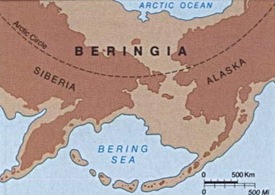
The Six Founding Native American Mothers - The Genetic Genealogist
If you’re interested in DNA, Native American History, or genetic genealogy, then you’re undoubtedly heard of a new paper from PLoS ONE called “The Phylogeny of the Four Pan-American mtDNA Haplogroups: Implications for Evolutionary and Disease Studies.” The authors, from… Continue reading →
The Dred Scott v. Sandford (1857). This is not for Tariq Nasheed and the FBA “ABOS-native Americans”).
"And this being the only matter in dispute on the pleadings, the court must be understood as speaking in this opinion of that class only, that is, of those persons who are the descendants of Africans who were imported into this country, and sold as slaves…."
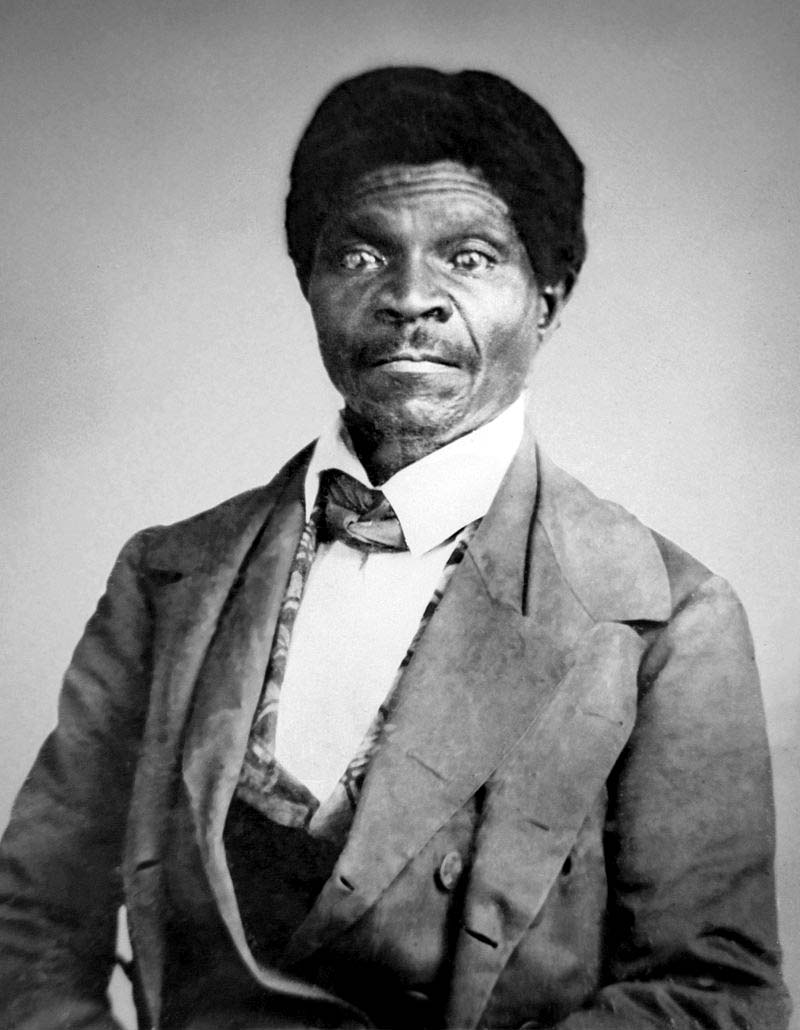
(1857) Dred Scott v. Sandford
Dred Scott v. Sandford, United States Supreme Court, 1857 (This text has been edited. The original decision is over 200 pages long) This is certainly a very serious question, and one that now for the first time has been brought for decision before this court. But it is brought here by those who...
 www.blackpast.org
www.blackpast.org

The Dred Scott Decision, 1857
The Dred Scott v. Sandford case (1857) was the most important slavery-related decision in the United States Supreme Court’s history. Coming on the eve of the Civil War, and seven years after the Missouri Compromise of 1850, the decision affected the national political scene, impacted the rights...
 www.blackpast.org
www.blackpast.org
The Dred Scott v. Sandford (1857).
Citation: Judgment in the U.S. Supreme Court Case Dred Scott v. John F. A. Sandford; 3/6/1857; Dred Scott, Plaintiff in Error, v. John F. A. Sandford; Appellate Jurisdiction Case Files, 1792 - 2010; Records of the Supreme Court of the United States, Record Group 267; National Archives Building, Washington, DC.
In this ruling, the U.S. Supreme Court stated that enslaved people were not citizens of the United States and, therefore, could not expect any protection from the federal government or the courts. The opinion also stated that Congress had no authority to ban slavery from a Federal territory
In 1846, an enslaved Black man named Dred Scott and his wife, Harriet, sued for their freedom in St. Louis Circuit Court. They claimed that they were free due to their residence in a free territory where slavery was prohibited.
The odds were in their favor. They had lived with their enslaver, an army surgeon, at Fort Snelling, then in the free Territory of Wisconsin. The Scotts' freedom could be established on the grounds that they had been held in bondage for extended periods in a free territory and were then returned to a slave state. Courts had ruled this way in the past.
However, what appeared to be a straightforward lawsuit between two private parties became an 11-year legal struggle that culminated in one of the most notorious decisions ever issued by the United States Supreme Court. Scott lost his case, which worked its way through the Missouri state courts; he then filed a new federal suit which ultimately reached the Supreme Court.
On its way to the Supreme Court, the Dred Scott case grew in scope and significance as slavery became the single most explosive issue in American politics. By the time the case reached the high court, it had come to have enormous political implications for the entire nation.
On March 6, 1857, Chief Justice Roger B. Taney read the majority opinion of the Court, which stated that enslaved people were not citizens of the United States and, therefore, could not expect any protection from the federal government or the courts. The opinion also stated that Congress had no authority to ban slavery from a federal territory. This decision moved the nation a step closer to the Civil War.
The decision of Scott v. Sandford, considered by many legal scholars to be the worst ever rendered by the Supreme Court, was overturned by the 13th and 14th amendments to the Constitution, which abolished slavery and declared all persons born in the United States to be citizens of the United States.

Dred Scott v. Sandford (1857)
EnlargeDownload Link Citation: Judgment in the U.S. Supreme Court Case Dred Scott v. John F. A. Sandford; 3/6/1857; Dred Scott, Plaintiff in Error, v. John F. A. Sandford; Appellate Jurisdiction Case Files, 1792 - 2010; Records of the Supreme Court of the United States, Record Group 267...
- Upon a writ of error to a Circuit Court of the United States, the transcript of the record of all the proceedings in the case is brought before this court, and is open to its inspection and revision.
- When a plea to the jurisdiction, in abatement, is overruled by the court upon demurrer, and the defendant pleads in bar, and upon these pleas the final judgment of the court is in his favor--if the plaintiff brings a writ of error, the judgment of the court upon the plea in abatement is before this court, although it was in favor of the plaintiff--and if the court erred in overruling it, the judgment must be reversed, and a mandate issued to the Circuit Court to dismiss the case for want of jurisdiction.
- In the Circuit Courts of the United States, the record must show that the case is one in which by the Constitution and laws of the United States, the court had jurisdiction--and if this does not appear, and the court gives judgment either for plaintiff or defendant, it is error, and the judgment must be reversed by this court--and the parties cannot by consent waive the objection to the jurisdiction of the Circuit Court.
- A free negro of the African race, whose ancestors were brought to this country and sold as slaves, is not a "citizen" within the meaning of the Constitution of the United States.
In this ruling, the U.S. Supreme Court stated that enslaved people were not citizens of the United States and, therefore, could not expect any protection from the federal government or the courts. The opinion also stated that Congress had no authority to ban slavery from a Federal territory

Dred Scott v. Sandford (1857)
EnlargeDownload Link Citation: Judgment in the U.S. Supreme Court Case Dred Scott v. John F. A. Sandford; 3/6/1857; Dred Scott, Plaintiff in Error, v. John F. A. Sandford; Appellate Jurisdiction Case Files, 1792 - 2010; Records of the Supreme Court of the United States, Record Group 267...
I actually grew up with Black Americans (FBA/ADOS) and do have family and friends in the States. So... I am not really getting what you're trying to say? But you do have I point, because I am not connect to Amerindians in North America, like you are as a Cherokee / Choctaw descendant. Not sure why you are on here arguing over Black people's rights and Black people's social, socioeconomic issues.That's like an Asian Man thinking he knows everything about black folk because he saw the movie Roots. I don't think some people understand what type of world we actually live in.
Are you on a reservation as we speak, all other Cherokees and Choctaws?
Last edited:
These people are sick ...now Blues is from Africa
Blues itself is not from Africa, logically. I made a thread on this topic of Blues and Jazz. It's about the root notes and how the chord progression is being played.

Nick LaRocca & The Original Dixieland Jazz (Jass) Band (ODJB) Recording Tiger Rag in 1917
The channel owner claims that Jazz originated with Italians. And that the word Jazz stems from a Sicilian word “jass”. From the channel: “In this episode of Celebrating Culture: Bandleader David Hansen speaks with Charles Marsala about the "Father of Modern Jazz", Sicilian Cornetist &...
 www.thecoli.com
www.thecoli.com
"Jazz harmony at its structural and aesthetic level is based predominantly on African matrices,..."
Collection Guides for Center for Black Music Research Collection | Archives and Special Collections | Center for Black Music Research | Columbia College Chicago
The collection guides or finding aids detailing the sorts of information housed in special collections held in the Center for Black Music Research Collection at Columbia College Chicago.
Black Music Research Journal Vol. 25, No. 1/2 (Spring - Fall, 2005), pp. 167-222 (56 pages) Published By: Center for Black Music Research
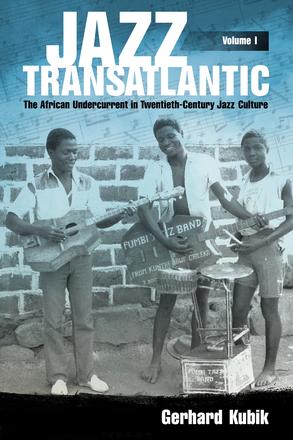

Jazz Transatlantic, Volume I
A CHOICE 2018 Outstanding Academic TitleIn Jazz Transatlantic, Volume I, renowned scholar Gerhard Kubik takes the reader across the Atlantic from Africa to the Americas and then back in pursuit of the ...
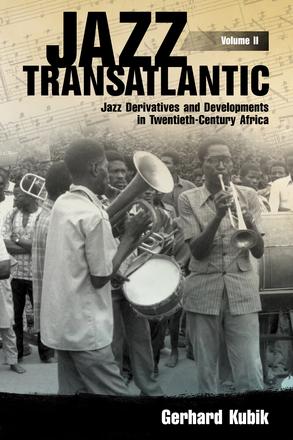

Jazz Transatlantic, Volume II
A CHOICE 2018 Outstanding Academic TitleIn Jazz Transatlantic, Volume II, renowned scholar Gerhard Kubik extends and expands the epic exploration he began in Jazz Transatlantic, Volume I. This second ...


Africa and the Blues
In 1969 Gerhard Kubik chanced to encounter a Mozambican labor migrant, a miner in Transvaal, South Africa, tapping a cipendani, a mouth-resonated musical bow. A comparable instrument was seen in the hands ...
"Blues is considered an “American” genre of music but it’s still a historical and cultural continuation of African folk music adapted to a new environment. Therefore, African-American blues is both a foundation of American popular music and, stylistically, part of the larger African cultural family because it is fundamentally an African style of music."
[...]
That African scale system is the fundamental root of blues music.
Nketia also explains the various melodies, rhythms, scale patterns, and notations of indigenous African music. In the chapter on vocal melodies in The Music of Africa, Nketia shows the pentatonic system, which includes a flatted fifth, in an African vocal melody: C-D-E-G-B♭ [pg. 150]. Nketia explains:
…instead of a major sixth, a minor seventh is used. That is, instead of C-D-E-G-A, we have C-D-E-G-B♭… this gives a distinctive character to the music. An important feature of melodic organization associated with pentatonic structures is that of transposition, whereby the melody is shifted from one position of a trichord to another. The shift may be a whole step, or as much as two or three steps, up or down. That is, there could be a shift from a G-A-B or E-G-A-B sequence to an F-G-A or D-F-G-A sequence within the same song, or from A-G-F to D’-C-B♭ in the same song” [pg. 150]".
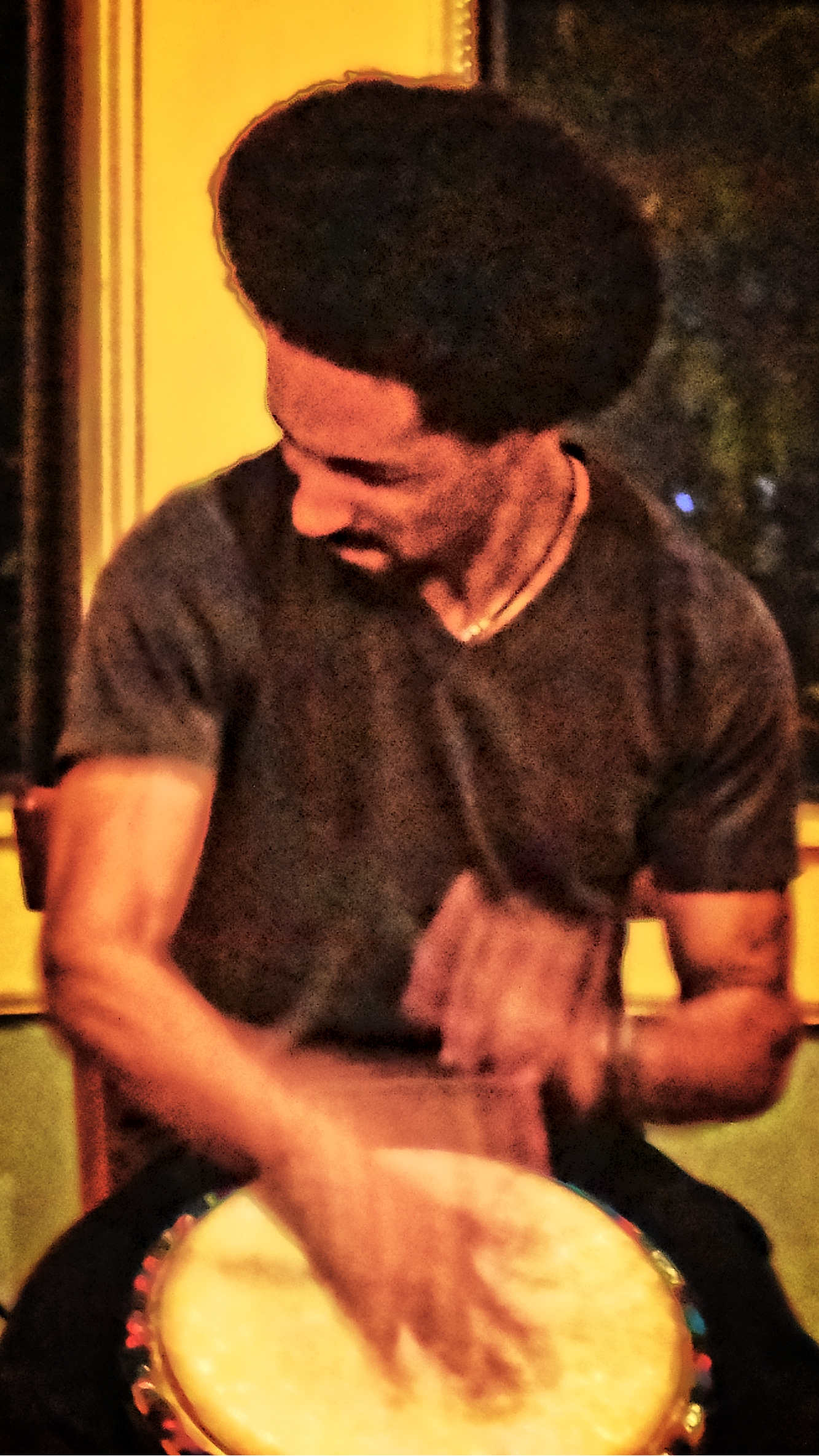
About Adam
Adam Hudson (he/him) is an African-American teacher, writer/journalist, commentator, musician, Pan-Africanist, and co-host of the podcast Real Sankara Hours. He holds a BA in International Rela…
 adamhudson.org
adamhudson.org
Last edited:


